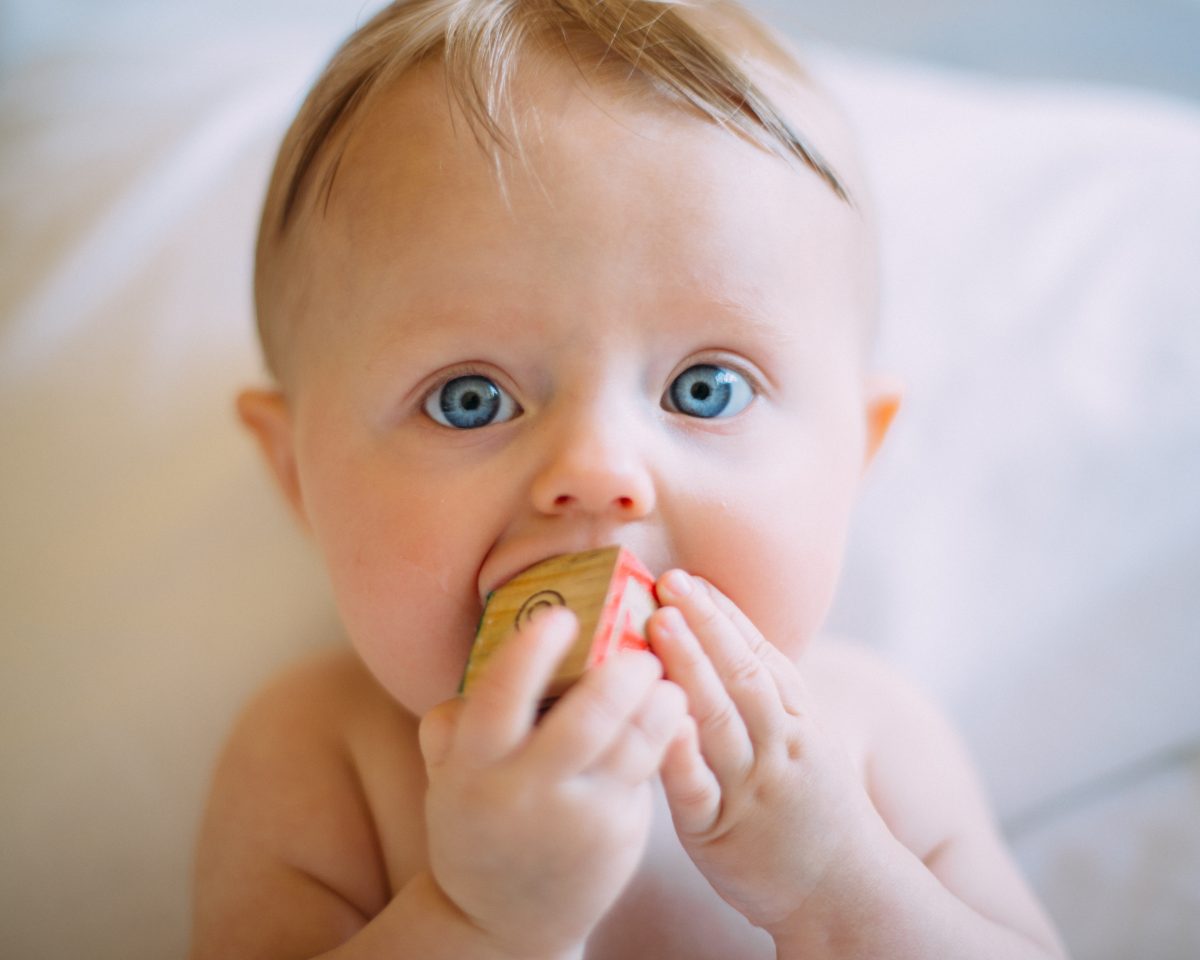Teething usually happens between the sixth and twelfth month, and it can be a very uncomfortable experience for many babies. This is why it is important for parents looking for a children-suitable dentist to choose the right one for their child. From crying to having a slight fever, teething will be one of the most exhausting and tedious periods in baby’s but your life as well. Just hearing and seeing your baby going through any type of pain and discomfort will be heart-breaking for you as well, which is why you should be prepared and know exactly how to recognize the first signs of teething, and how to soothe the pain.
Red and swollen gums
The change in the baby’s gums is one of the first signs that your little one is teething. If you notice their gums are red, swollen, bruised and sore, the baby has started teething. Massaging the gums with your finger is one of the best remedies that will soothe the baby’s pain. Make sure you’ve washed your hands well first, and gently press a cold finger to baby’s gums, slowly massaging it. Herbal remedies can also be great for alleviating pain, so consider mixing clove, catnip, chamomile and rosehip, cover it with olive oil and simmer in a small saucepan for 4-6 hours. Strain the infusion and let it cool down in the fridge. Soak a cloth in the infusion and rub it slowly on the baby’s gums.
Excessive drooling and biting
They will put everything in their mouth once they start teething, and even if you don’t feel a tooth coming out yet, the baby knows it’s about to grow so it needs to chew on various objects. This will cause excessive drooling, that can last up to a few weeks before you notice a tooth erupting. The pressure of eruption can be unbearable, which is why the baby will need to chew on everything trying to get a bit of relief. This will also make the baby fussy and disrupt their sleep. One of the things that can help the little one ease the discomfort are baby teething toys that they can chew on and have fun while they’re at it. A teething mitt with silicone shaped teethe sewn onto the top is one of the greatest teething toys your bundle of joy can chew on and not worry about dropping it on the floor. The baby’s mouth and hands will stay happy and occupied, while the pain will be soothed efficiently.
Refusing to eat

Losing appetite is one of the signs that your baby is teething. Sucking and chewing on food will put a lot of pressure on baby’s gums, which can only increase an already annoying discomfort, so if you notice your baby lacks interest in food, you know what the problem is. This is the time for you to switch from solids to mesh teethers with frozen fruits and veggies inside. Make sure you stay away from any food that can cause choking. Older babies can have a frozen banana or make natural teething biscuits.
Rubbing of the ear
Gums are connected to the ear cavity as well, which is why your baby will feel a slight pain in the ear the minute they start teething. This is precisely why you should pay attention to your little one, and if you notice they’re rubbing their ear you’ll now it’s the time for pain relievers. Reducing inflammation that stimulates nerves which causes pain is another way to alleviate your baby’s teething pain. Putting your baby on a low inflammatory diet is one of the possible options. Instead of feeding them solids, refined sugar, dairy, potatoes, flour and other white foods that cause inflammation, think about switching to healthy fats such as whole eggs, butter, avocado, and coconut. Include various fruits and veggies wild seafood and pastured meat.
Mild fever
Teething can also cause mild fevers and colds because the immune system lowers at that period of the baby’s development. This is why you should try to boost your baby’s immune system, and prevent or just quickly make the fever go away, and the inflammation along with it. One of the options to continue breastfeeding and offer your baby the necessary antibodies to build their immune system. Furthermore, a vitamin D deficiency can also cause the immune system to drop, so feel free to give the little one liquid vitamin D drops. Probiotics can also boost the immune system, so don’t forget to build a healthy gut flora that will keep the baby inflammation-free.
Final thoughts
Teething is one of the periods that will be most uncomfortable for your baby, and probably for you as well. However, just make sure you notice that your little one is starting to grow teeth on time so you can offer them appropriate pain reliever as soon as possible. The sooner you ease their discomfort the less painful the entire process will be.




